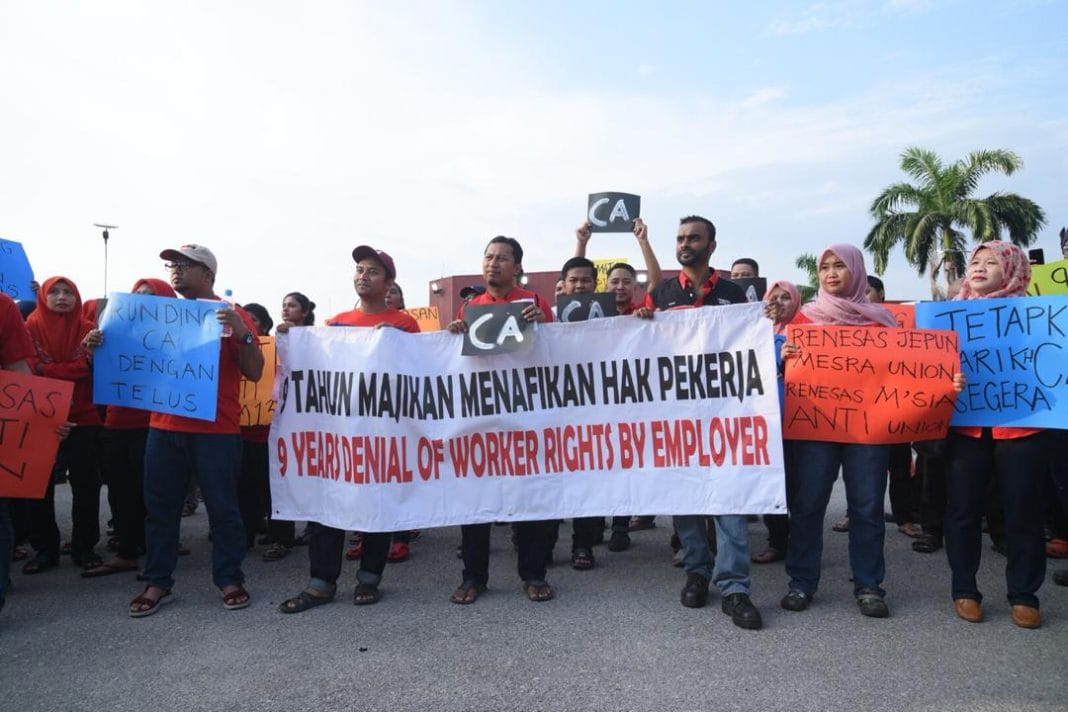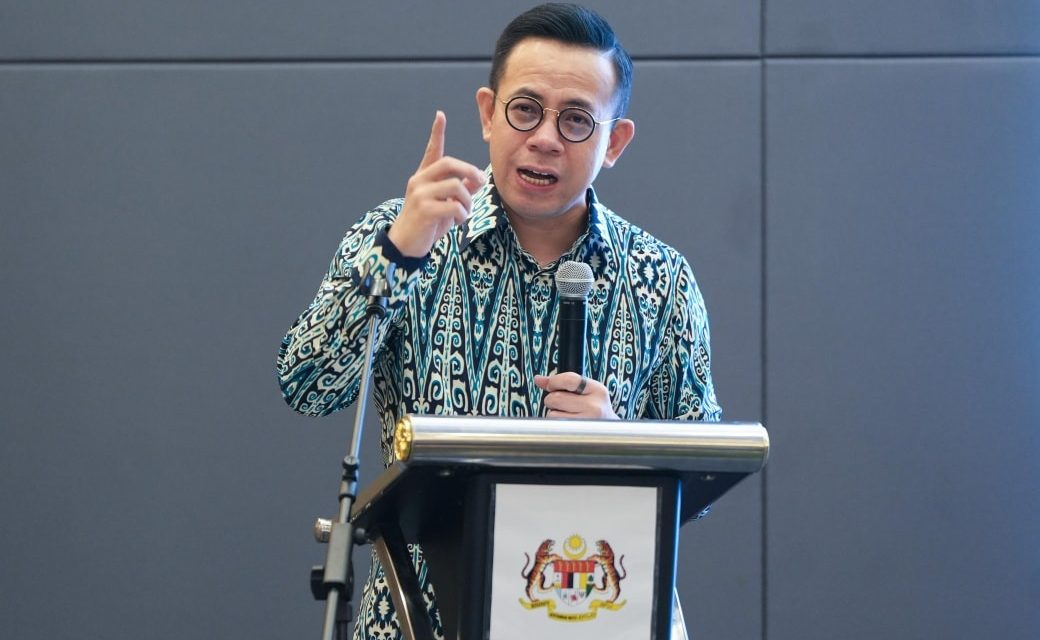
AUG 25 — The recent announcement by Human Resources Minister Steven Sim Chee Keong that employers will be allowed to use their Human Resources Development (HRD) levy contributions to pay graduate salaries, instead of limiting the fund to training, signals a major milestone (possibly a crisis) for the country’s training sector.
Since 1992, employers have been required to contribute between 0.5 to 1 per cent of employees’ salaries towards a fund which can be drawn on for employee training.
Over more than 30 years, there remains up to RM2 billion which, according to Sim, must now be unlocked to help companies hire Malaysian graduates, tackle brain drain and so on.
One can only speculate, but presumably the government feels the problem of fresh grad unemployment can be (painlessly?) resolved by granting companies access to the HRD funds (and RM2 billion is no small amount).
The benefit to fresh grads and brain-drain slowdown notwithstanding, the huge question now is what’s going to happen to the training sector for whom the HRD funds have been a critical source of revenue?
It doesn’t take a corporate genius to guess that employee training is hardly a huge priority among most organisations.
And you can’t necessarily blame the bosses. Especially given a difficult economic climate, very few CEOs are going to insist on spending money to take staff away from their workplace to attend a class whose learning outcomes are almost never immediate.
Why spend money to send people away (sometimes for days) doing something with no instant payback to the company?
Funny thing is, this attitude is often reflected among employees themselves. As a former manager in charge of training, I’ve always found it kind of cute that 60-70 per cent of training requests will normally come at the second half of the year.
You can surely guess why. Somehow training is never important enough for most workers to apply for courses as early as possible.
It tends to become something for which department heads need to push people to do. “Hey, cepat pergi training, kalau tak pergi KPI tak cukup!” (smile)
With the latest development, I’m curious as to whether training will even make it into employee KPIs anymore.
Very likely it’ll become optional, especially among companies struggling financially (which will almost certainly use the funds for salaries instead).
Overall, will corporate training in Malaysia fall like something in those egg-drop team-building games? Does the latest government announcement sound the death knell of training in the country?
Whilst it’s unlikely to be that dramatic, there is no doubt that training companies will be facing a crisis.
Any training provider whose strategy is primarily about tapping into HRD funds may start to feel like a taxi company in the face of Grab and Uber.
I can’t predict what’s going to be urgently discussed in these companies’ boardrooms now but I’m guessing ideas like strategic partnering and collaboration (with clients to do a lot more than provide training), cost-“flexibility” (that huge elephant in the room) and programs focused on graduates (for obvious reasons) are going to have to be on the agenda.
Maybe this isn’t a bad thing, but I guess trainers charging organisational arms and legs for their five-star courses will need to review their budget and promotional documents.
If there’s a clear positive from Sim’s announcement, not unlike any typical austerity drive, the conspicuously needless and expensive will be chopped and some much needed attention redirected towards what’s most important.
Most importantly, how do you retain corporate interest in training when the #1 source of funds is no longer mandated towards training?
I’ll say right now I have no idea but if the country is to avoid a fallout of training providers, I hope these training companies and trainers do.

Lau, A. (2025, August 25). Corporate training sector in crisis? Malay Mail. Retrieved from https://www.malaymail.com/news/opinion/2025/08/25/corporate-training-sector-in-crisis/188791
- PERKESO reforms ensure comprehensive protection for all workers, says HR Minister
 KUALA LUMPUR: The Human Resources Ministry, through the Social Security Organisation (PERKESO), continues to undertake comprehensive reforms to strengthen social protection for all contributors, including gig workers and foreign workers, says Steven Sim Chee Keong. The Human Resources Minister said that 10 major reforms have been implemented over the past two years to provide more […]
KUALA LUMPUR: The Human Resources Ministry, through the Social Security Organisation (PERKESO), continues to undertake comprehensive reforms to strengthen social protection for all contributors, including gig workers and foreign workers, says Steven Sim Chee Keong. The Human Resources Minister said that 10 major reforms have been implemented over the past two years to provide more […] - KESUMA’s drive for fair work and shared progress
 The LIFE AT WORK Awards (LAWA) hosted by Talent Corporation Malaysia Bhd (TalentCorp), celebrates its 10th edition, solidifying its influence as a platform that drives transformation in diversity, equity and inclusion (DEI) in Malaysian workspaces. With concerns regarding human capital rising amid the ubiquity of artificial intelligence (AI), it is crucial now more than ever […]
The LIFE AT WORK Awards (LAWA) hosted by Talent Corporation Malaysia Bhd (TalentCorp), celebrates its 10th edition, solidifying its influence as a platform that drives transformation in diversity, equity and inclusion (DEI) in Malaysian workspaces. With concerns regarding human capital rising amid the ubiquity of artificial intelligence (AI), it is crucial now more than ever […] - ‘Many employers not making mandatory Perkeso, EPF contributions’
 KLANG: The Human Resources Ministry has detected a worrying number of employers still refusing to register or make mandatory contributions to the Social Security Organisation (Perkeso) and Employees Provident Fund (EPF) for their workers. The ministry stressed that such actions violated employees’ rights and denied them basic protection. Deputy Human Resources Minister Datuk Seri Abdul […]
KLANG: The Human Resources Ministry has detected a worrying number of employers still refusing to register or make mandatory contributions to the Social Security Organisation (Perkeso) and Employees Provident Fund (EPF) for their workers. The ministry stressed that such actions violated employees’ rights and denied them basic protection. Deputy Human Resources Minister Datuk Seri Abdul […] - Nearly 500 labour law breach cases detected
 KLANG: Almost 500 investigation papers have been opened against employers for breaches of labour laws as of Nov 1, says Deputy Human Resources Minister Datuk Seri Abdul Rahman Mohamad. Among the most common labour law offences are employers’ failure to make the mandatory contributions to the Social Security Organisation (PERKESO) or the Employees Provident Fund […]
KLANG: Almost 500 investigation papers have been opened against employers for breaches of labour laws as of Nov 1, says Deputy Human Resources Minister Datuk Seri Abdul Rahman Mohamad. Among the most common labour law offences are employers’ failure to make the mandatory contributions to the Social Security Organisation (PERKESO) or the Employees Provident Fund […] - MOHR Won’t Tolerate Companies Preventing Workers From Forming Union
 The Industrial Relations Department of the Human Resources Ministry (MOHR) has reaffirmed its commitment to safeguarding workers’ rights after a gathering and memorandum submission by several labour unions concerning alleged union-busting practices. The department emphasised that it respects the constitutional right to peaceful assembly and freedom of speech, while reiterating that workers’ rights to form […]
The Industrial Relations Department of the Human Resources Ministry (MOHR) has reaffirmed its commitment to safeguarding workers’ rights after a gathering and memorandum submission by several labour unions concerning alleged union-busting practices. The department emphasised that it respects the constitutional right to peaceful assembly and freedom of speech, while reiterating that workers’ rights to form […] - Court Orders Employer To Pay 93 Migrant Workers Outstanding Wages
 Human Resources Minister Steven Sim Chee Keong has welcomed the Shah Alam High Court’s decision to uphold an earlier ruling by the Labour Court, ordering an employer to pay outstanding wages to 93 migrant workers who were left without work upon arrival in Malaysia. The High Court on 31 October 2025 affirmed the Labour Court’s […]
Human Resources Minister Steven Sim Chee Keong has welcomed the Shah Alam High Court’s decision to uphold an earlier ruling by the Labour Court, ordering an employer to pay outstanding wages to 93 migrant workers who were left without work upon arrival in Malaysia. The High Court on 31 October 2025 affirmed the Labour Court’s […] - No tolerance for employers who withhold wages, says HR Minister
 The Ministry of Human Resources (KESUMA) has urged all employers to take heed of the recent Shah Alam High Court ruling which upheld a decision in favour of 93 migrant workers in an unpaid wage case. Human Resources Minister Steven Sim Chee Keong said the Oct 31 decision sends a strong message that failure to […]
The Ministry of Human Resources (KESUMA) has urged all employers to take heed of the recent Shah Alam High Court ruling which upheld a decision in favour of 93 migrant workers in an unpaid wage case. Human Resources Minister Steven Sim Chee Keong said the Oct 31 decision sends a strong message that failure to […] - THE HEART WORK REVOLUTION
 TEN years after its inception, the Life at Work Awards (LAWA) 2025 marked not just a milestone but a movement that celebrates how Malaysia’s workplaces are evolving with compassion, flexibility and purpose. Hosted by Talent Corporation Malaysia Bhd (TalentCorp), the gala night honoured organisations leading the way in shaping a fairer, more progressive, human-centred world […]
TEN years after its inception, the Life at Work Awards (LAWA) 2025 marked not just a milestone but a movement that celebrates how Malaysia’s workplaces are evolving with compassion, flexibility and purpose. Hosted by Talent Corporation Malaysia Bhd (TalentCorp), the gala night honoured organisations leading the way in shaping a fairer, more progressive, human-centred world […] - Group wants clear framework, pilot projects before expanding EIS to gig workers
 PETALING JAYA: The Malaysian Industrial, Commercial and Service Employers Association (Micsea) has called on the government to set a clear policy framework and run pilot projects before expanding the Employment Insurance System (EIS) to gig and platform-based workers. The association said the plan, announced by human resources minister Steven Sim in the Dewan Rakyat on […]
PETALING JAYA: The Malaysian Industrial, Commercial and Service Employers Association (Micsea) has called on the government to set a clear policy framework and run pilot projects before expanding the Employment Insurance System (EIS) to gig and platform-based workers. The association said the plan, announced by human resources minister Steven Sim in the Dewan Rakyat on […] - Employer group seeks clarity on foreign worker pay rules after court ruling
 KUALA LUMPUR (Nov 3): The Malaysian Industrial Commercial & Service Employers Association (MICSEA) is calling on the Ministry of Human Resources (MOHR) to issue clear and structured guidelines on wage payment timelines for foreign workers, following a recent court ruling that employers must pay wages from the moment these workers arrive in Malaysia. The call […]
KUALA LUMPUR (Nov 3): The Malaysian Industrial Commercial & Service Employers Association (MICSEA) is calling on the Ministry of Human Resources (MOHR) to issue clear and structured guidelines on wage payment timelines for foreign workers, following a recent court ruling that employers must pay wages from the moment these workers arrive in Malaysia. The call […]
